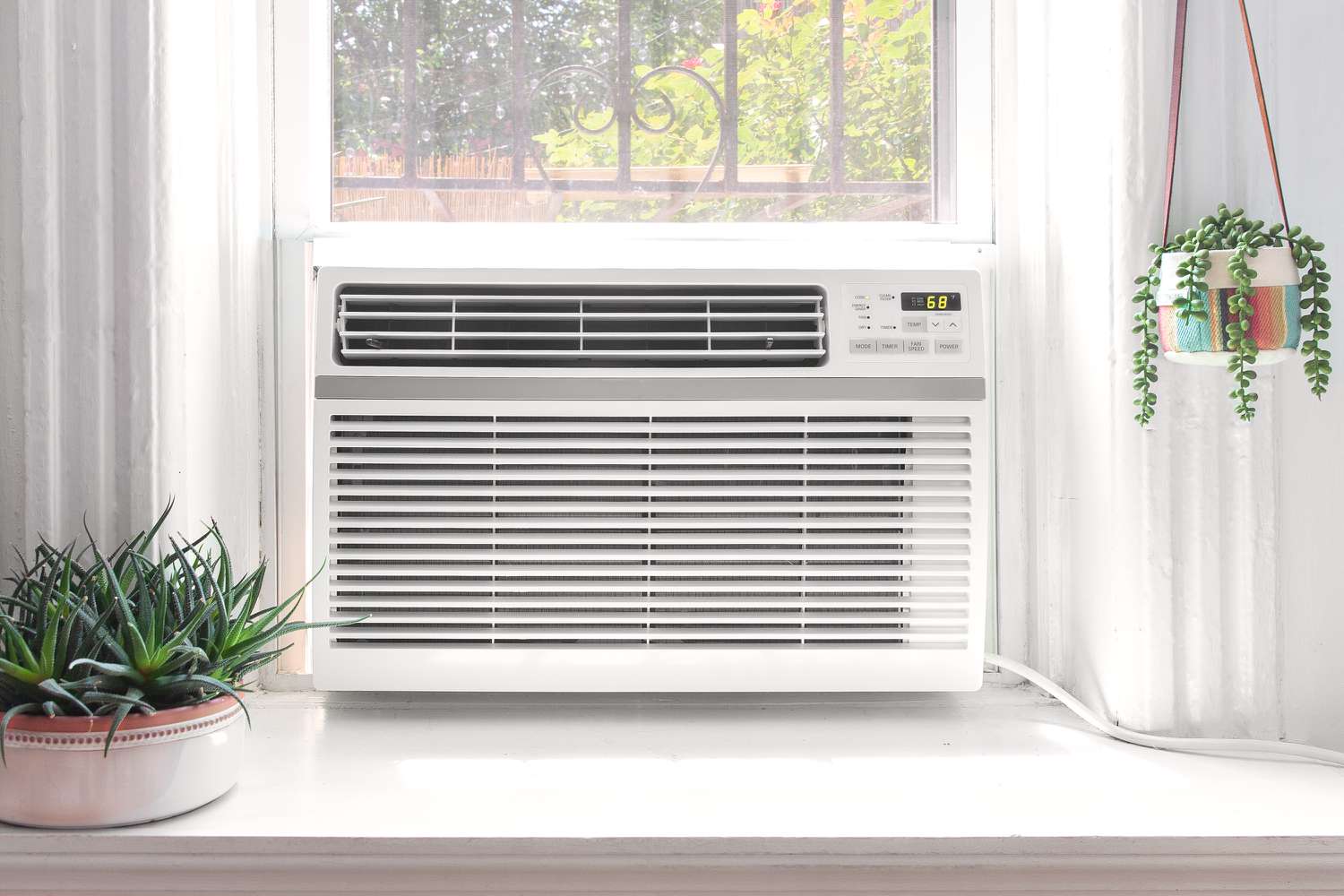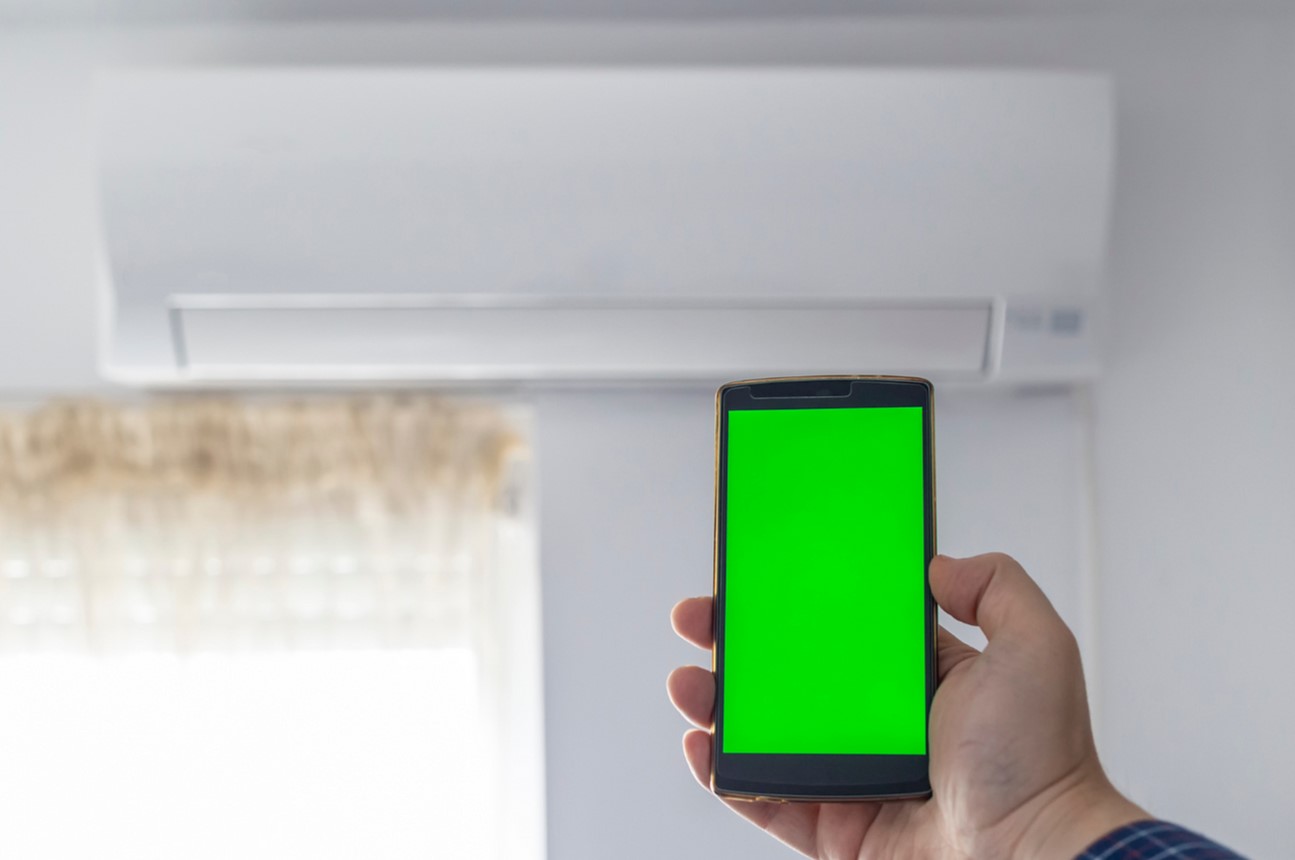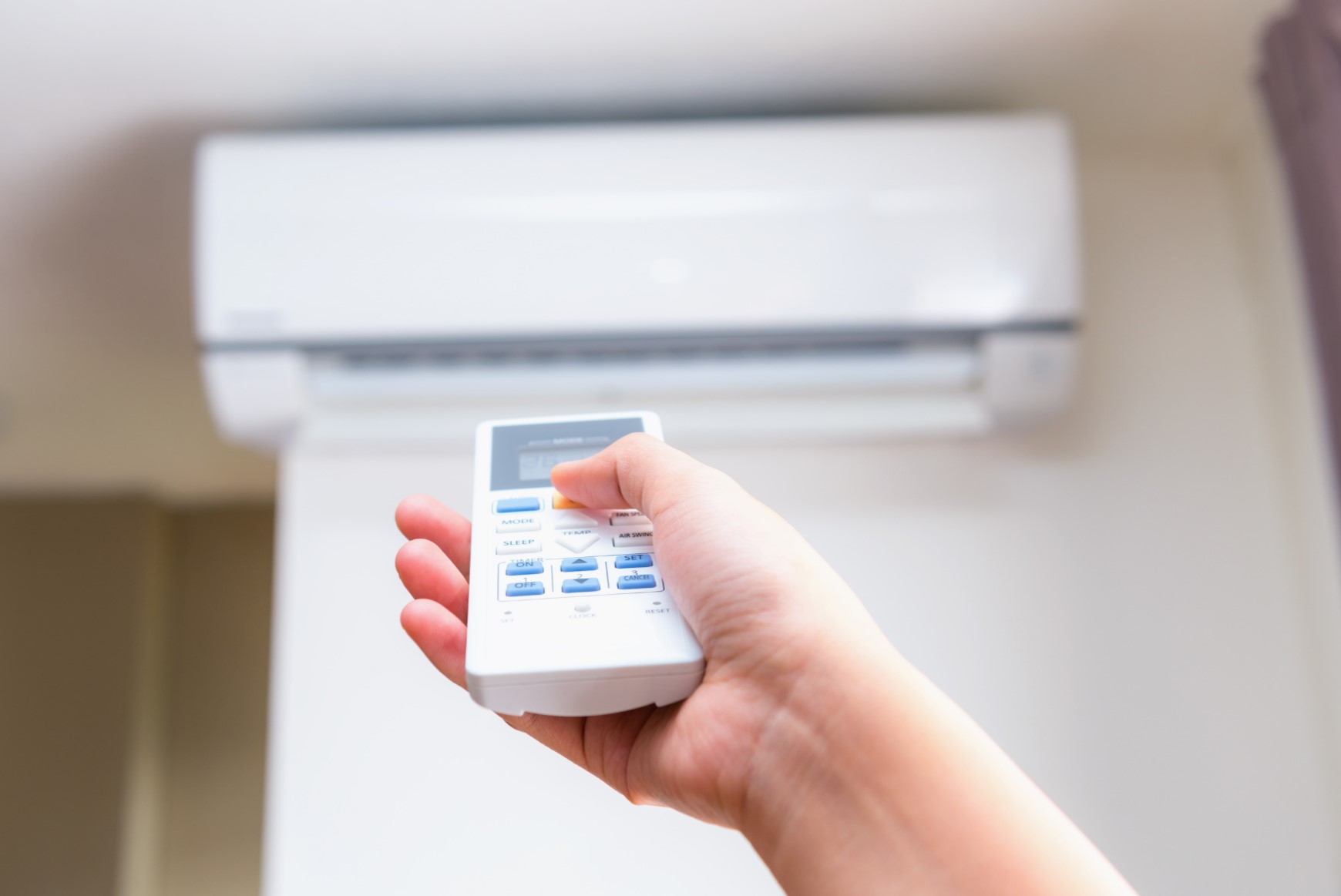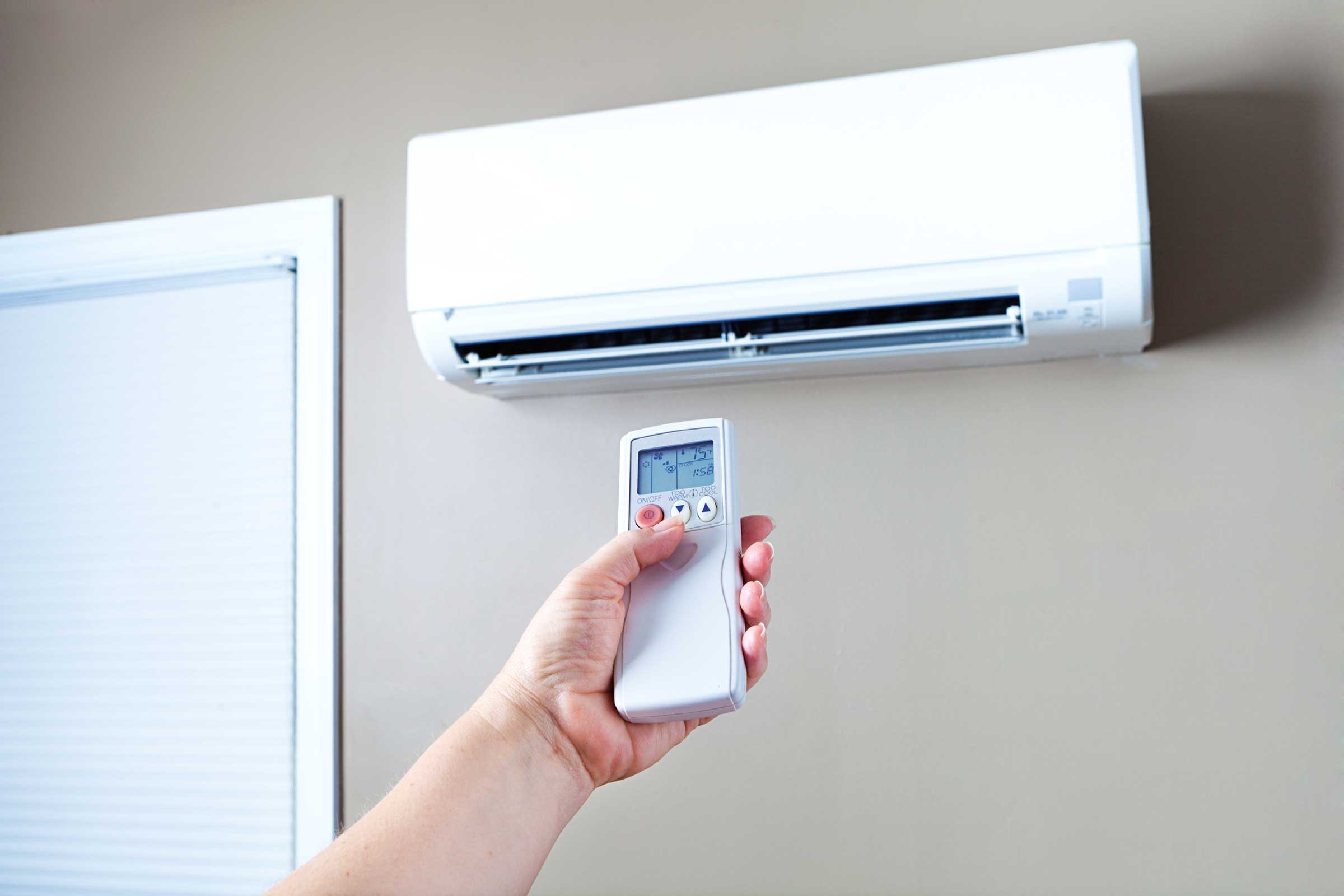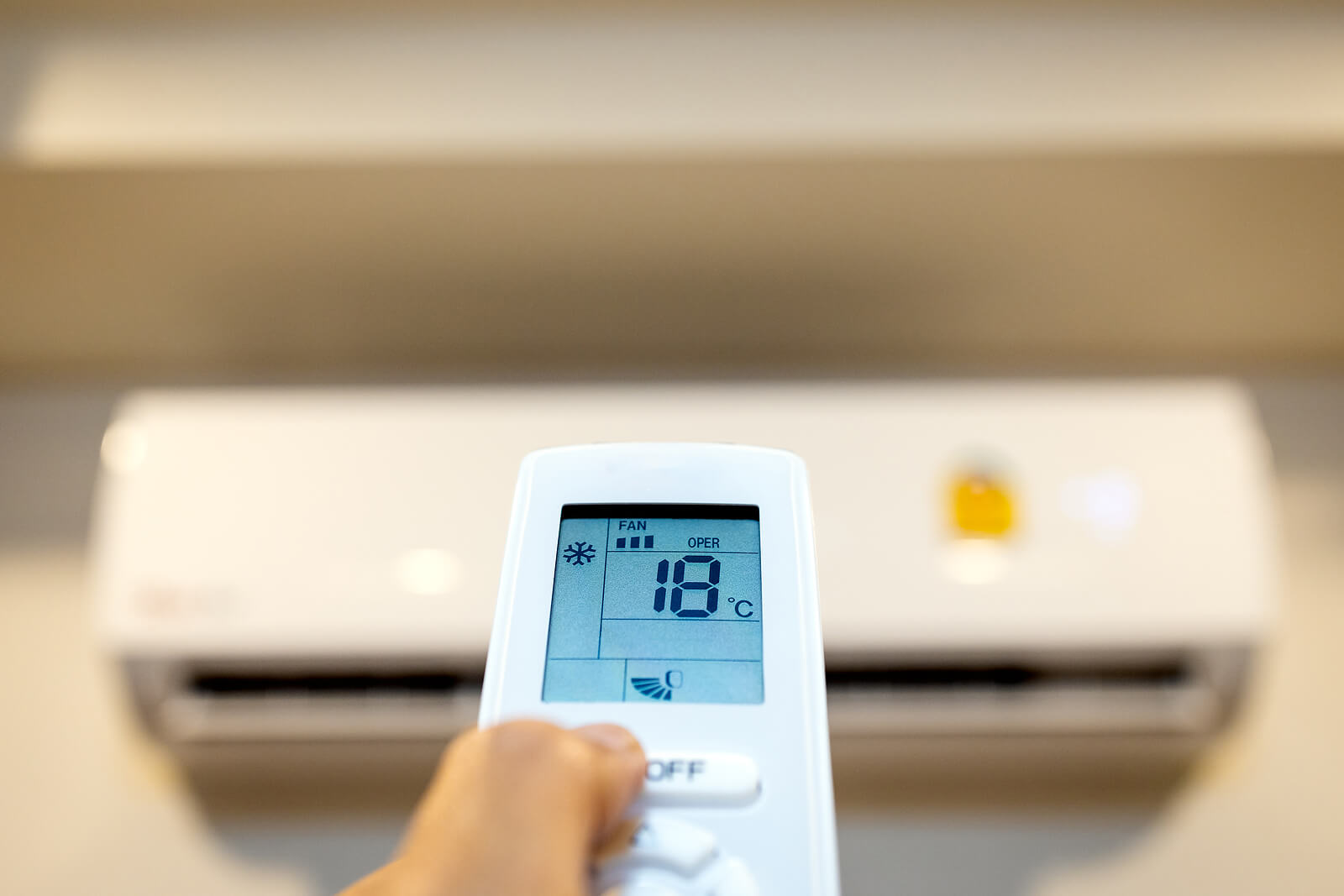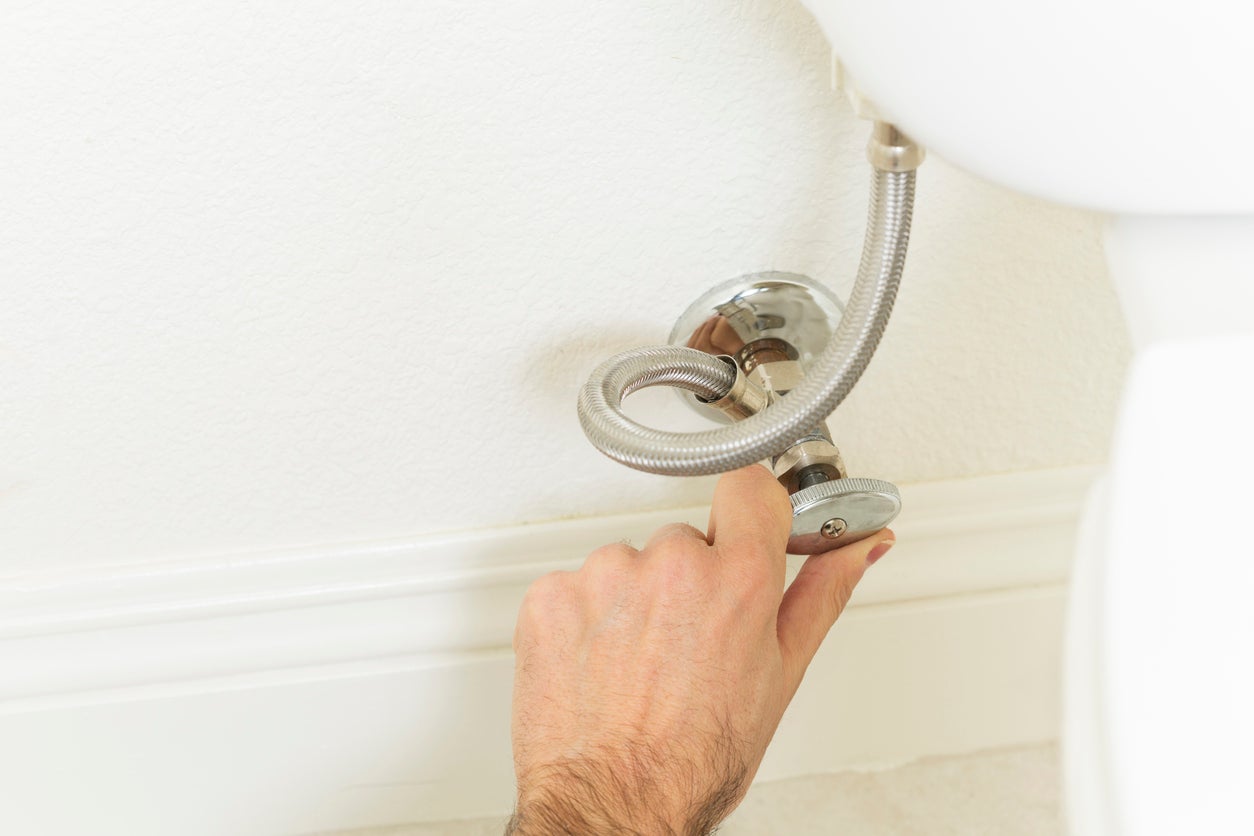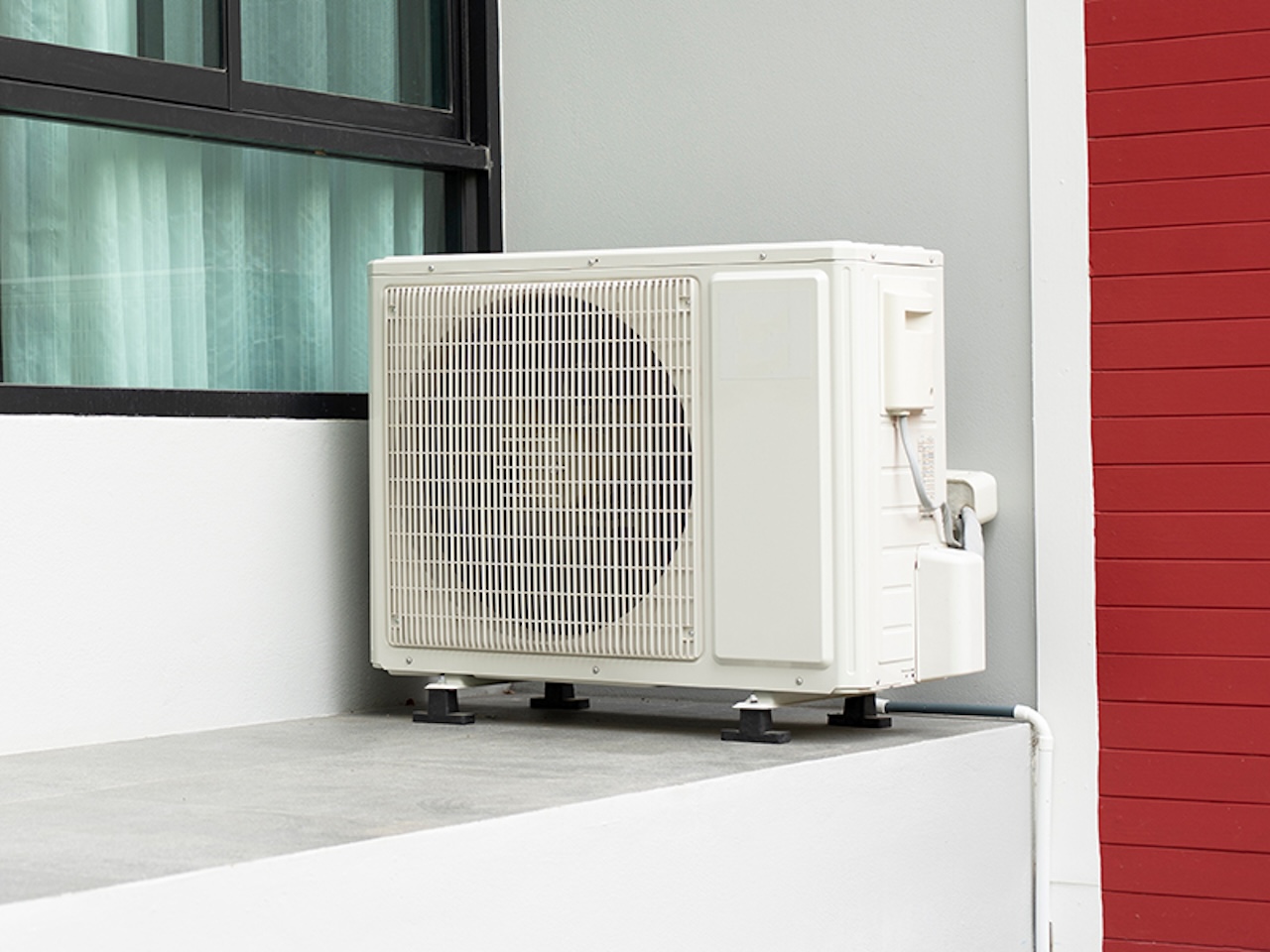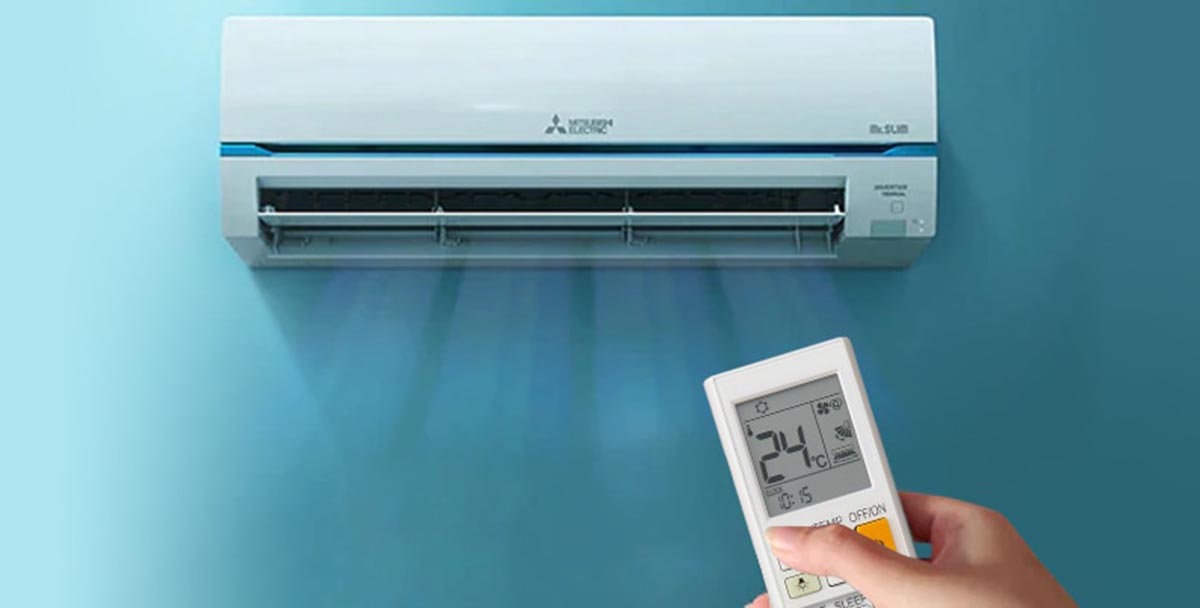Home>Home Maintenance>When To Turn Off The Air Conditioner
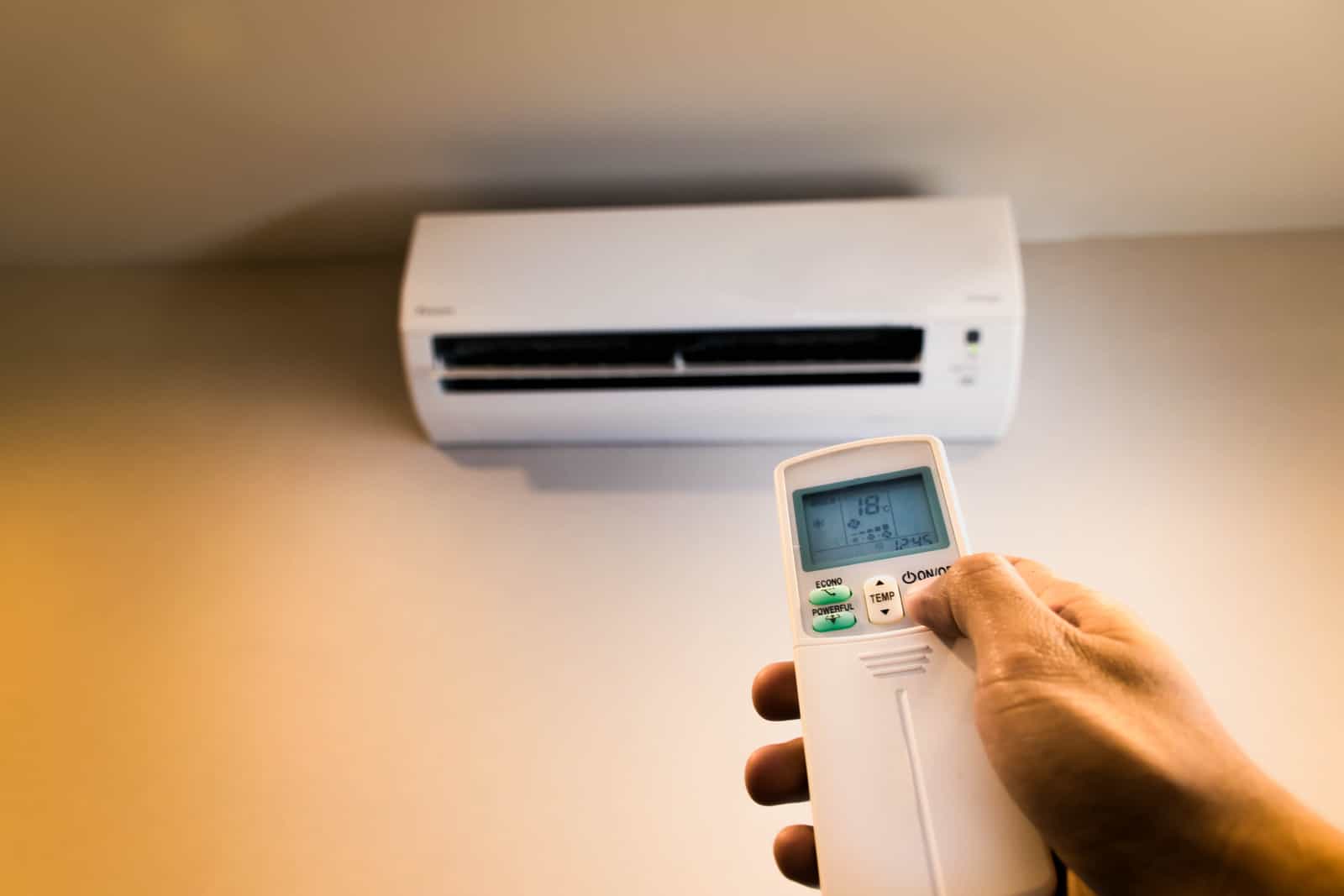

Home Maintenance
When To Turn Off The Air Conditioner
Modified: October 21, 2024
Learn when it is necessary to turn off your air conditioner and save energy with proper home maintenance.
(Many of the links in this article redirect to a specific reviewed product. Your purchase of these products through affiliate links helps to generate commission for Storables.com, at no extra cost. Learn more)
Introduction
When it comes to home maintenance, one of the most important considerations is ensuring the optimal functioning of your air conditioner. With rising temperatures, it becomes essential to keep your living space cool and comfortable. However, continuously running the air conditioner can lead to excessive energy consumption and sky-high electricity bills. So, the question arises: when should you turn off the air conditioner?
Determining the right time to turn off your air conditioner can be a balancing act between energy efficiency and personal comfort. Several factors come into play, including outside temperature, inside temperature, humidity levels, energy consumption, personal preferences, and sleeping conditions. By understanding these factors and making informed decisions, you can maximize both comfort and savings.
In this article, we will explore the various factors to consider when deciding to turn off your air conditioner. We will delve into the ideal outside and inside temperature ranges, the impact of humidity levels, energy consumption considerations, personal comfort preferences, the time of day, and specific recommendations for sleeping conditions. Let’s dive in and discover when to turn off your air conditioner.
Key Takeaways:
- Find the right balance between comfort and savings by turning off the air conditioner during mild weather and using alternative cooling methods, while keeping it on during hot summer days for relief from the heat.
- Consider personal comfort, humidity levels, and energy consumption when deciding when to turn off the air conditioner, and utilize tips like using ceiling fans and sealing air leaks to optimize its usage.
Factors to Consider
When deciding when to turn off your air conditioner, it’s important to take several factors into account. By considering these factors, you can strike a balance between maintaining a comfortable indoor environment and minimizing energy consumption.
Here are the key factors to consider:
- Outside Temperature: The outside temperature plays a significant role in determining when to turn off your air conditioner. During mild weather, such as in the spring or fall, you may be able to keep your windows open and rely on natural ventilation instead of air conditioning. However, during hot summer days, the air conditioner will likely be necessary.
- Inside Temperature: Monitor the inside temperature of your home to determine if it is within a comfortable range. If the temperature is too high, turning on the air conditioner can help cool down the space. Conversely, if the temperature is already comfortable, turning off the air conditioner can save energy and reduce your carbon footprint.
- Humidity Levels: Humidity can greatly affect our comfort levels. High humidity can make us feel sticky and uncomfortable, even if the temperature is not extremely hot. If the air conditioner helps to alleviate high humidity levels, it may be worth keeping it on for that reason, even if the temperature is not excessively high.
- Energy Consumption: Consider the energy consumption of your air conditioning unit. Running the air conditioner constantly can lead to high energy bills. If you are concerned about your environmental impact or want to save money, turning off the air conditioner when it is not needed can greatly reduce energy consumption.
- Personal Comfort: Personal comfort is subjective and varies from person to person. Some individuals may feel comfortable with higher temperatures, while others may prefer a cooler environment. Understanding your own comfort preferences will help you determine when to turn off the air conditioner and rely on other cooling methods.
By taking these factors into account, you can make an informed decision about when to turn off your air conditioner. It’s essential to find a balance that maintains comfort while minimizing energy consumption. Next, let’s explore some specific scenarios and recommendations for when to turn off your air conditioner based on these factors.
Outside Temperature
The outside temperature is a key factor to consider when deciding whether to turn off your air conditioner. Understanding the ideal temperature range for your comfort can help you make an informed decision.
During mild weather, such as in the spring or fall, when the outside temperature is pleasant and not excessively hot, you may consider turning off your air conditioner and opening windows to enjoy natural ventilation. This can help lower your energy consumption and bring fresh air into your home.
However, during hot summer days, with temperatures soaring, it’s recommended to keep your air conditioner running. High temperatures can lead to discomfort, heat-related illnesses, and decreased productivity. A properly functioning air conditioner can provide relief from the sweltering heat and maintain a cool indoor environment. In hot climates or areas with high humidity, turning off the air conditioner for extended periods may not be practical or comfortable.
It’s important to strike a balance between your comfort and sustainability. Rather than solely relying on the air conditioner, you can use other strategies to stay cool during moderately warm weather. For example, you can use ceiling fans, window coverings to block out sunlight, and natural ventilation to circulate air. These measures can help reduce your dependence on the air conditioner and save energy.
Monitoring the outside temperature can guide your decision-making process. Weather apps, thermostats with outdoor temperature sensors, or even a simple outdoor thermometer can provide real-time information. This way, you can determine whether the outside temperature is within a range that allows for comfortable living without relying heavily on the air conditioner.
Remember, every individual has different comfort levels. While some may feel comfortable with higher temperatures and minimal air conditioning, others may require a cooler environment. Take into account your personal comfort preferences and the well-being of everyone in your household when determining when to turn off the air conditioner based on the outside temperature.
Inside Temperature
Understanding the inside temperature of your home is crucial when deciding whether to turn off your air conditioner. Monitoring the indoor temperature can help you determine if the air conditioner is necessary for maintaining a comfortable living environment.
If the inside temperature is already within a comfortable range, you may consider turning off the air conditioner. This is particularly relevant during mild weather when the outside temperature is pleasant, and natural ventilation can help maintain a cool and comfortable indoor atmosphere.
On the other hand, if the inside temperature is too high and uncomfortable, it may be necessary to turn on the air conditioner to cool down the space. This is especially true during hot summer days when the outside temperature is elevated, and natural cooling methods may not suffice.
To determine the inside temperature, you can use a thermostat or a digital thermometer placed in different areas of your home. This will help you identify any temperature variations throughout different rooms and make decisions accordingly. You can also take advantage of smart thermostats that allow you to monitor and regulate the indoor temperature remotely, ensuring comfort and energy savings.
It’s important to note that energy efficiency can be achieved by setting the air conditioner to a slightly higher temperature than usual when you are at home. This can help save on energy costs while still maintaining a comfortable environment. Additionally, using ceiling fans or portable fans in combination with the air conditioner can improve air circulation and enhance the cooling effect.
Consider your personal comfort preferences and the well-being of everyone in your household when determining the ideal inside temperature. Some individuals may prefer a cooler environment, while others may be comfortable with slightly higher temperatures. Communicating and finding a middle ground can help maintain harmony and optimize energy consumption.
By carefully assessing the inside temperature, you can make informed decisions about when to turn off your air conditioner and utilize alternative cooling methods effectively.
Humidity Levels
Humidity levels can greatly impact our comfort and perceived temperature. When considering whether to turn off the air conditioner, it’s important to take humidity into account.
High humidity can make us feel sticky, uncomfortable, and even more sensitive to heat. In such situations, running the air conditioner can help reduce humidity levels and provide relief. The cooling process of an air conditioner involves removing moisture from the air, which helps to lower humidity levels and create a more comfortable indoor environment.
However, if the outside temperature is not excessively high but the humidity is low, you may consider turning off the air conditioner and relying on natural ventilation. Opening windows or using fans can help circulate the air and create a cooling effect, especially if the humidity is comfortably low.
To assess humidity levels, you can use a hygrometer, a device that measures the amount of moisture in the air. Ideally, a comfortable relative humidity level is around 40-60%. If the humidity is consistently high and makes you feel uncomfortable, even with moderate temperatures, it may be worth keeping the air conditioner running to mitigate the effects of humidity.
It’s important to strike a balance between humidity control and energy efficiency. If your air conditioner has a dehumidifying mode, you can use it to specifically target high humidity levels without fully cooling the space. Additionally, using moisture-absorbing materials, such as dehumidifiers or silica gel packs, can help reduce humidity in smaller areas like closets or bathrooms.
Keep in mind that everyone has different sensitivity to humidity. Some individuals may feel more discomfort in higher humidity, while others may be less affected. Consider the preferences and well-being of everyone in your household when deciding whether to turn off the air conditioner based on current humidity levels.
By understanding the impact of humidity and monitoring its levels, you can make informed decisions about when to turn off your air conditioner while maintaining a comfortable and humidity-controlled indoor environment.
Read more: When To Turn On The Air Conditioner
Energy Consumption
When it comes to turning off the air conditioner, one of the primary factors to consider is energy consumption. The continuous operation of an air conditioning unit can significantly contribute to your electricity bills and environmental impact.
Running the air conditioner all day, even when it’s not necessary, can lead to excessive energy consumption. This not only increases your monthly expenses but also contributes to carbon emissions and puts a strain on the environment.
One way to optimize energy consumption is to utilize a programmable thermostat. This allows you to set specific temperature ranges and schedules for your air conditioner. For example, you can program the thermostat to increase the temperature when you’re away from home or during the night when outdoor temperatures typically drop.
During moderate weather conditions or when you’re not at home for an extended period, it’s advisable to turn off the air conditioner. Opening windows, using natural ventilation, or employing fans can help maintain a comfortable indoor temperature without relying solely on the air conditioner.
It’s worth noting that turning off the air conditioner intermittently can have a greater impact on energy consumption than leaving it running continuously. Frequent on/off cycles can strain the compressor and increase energy usage. Therefore, if you decide to turn off the air conditioner, consider doing so for longer periods rather than frequently switching it on and off throughout the day.
Additionally, it’s essential to keep your air conditioning unit properly maintained to ensure optimal efficiency. Regularly clean or replace air filters, check for any obstructions in the airflow, and have the unit serviced by professionals to maintain its energy efficiency and prolong its lifespan.
By being mindful of energy consumption and making conscious decisions about when to turn off the air conditioner, you can reduce your environmental footprint and save on energy costs without sacrificing comfort.
Turn off the air conditioner when you’re not at home to save energy. Use a programmable thermostat to automatically adjust the temperature when you’re away.
Personal Comfort
When deciding when to turn off the air conditioner, personal comfort is a crucial factor to consider. Each individual has their own preferences regarding temperature and their level of tolerance to heat or cold.
Consider your own comfort level when determining whether to turn off the air conditioner. Some individuals may feel comfortable with higher temperatures and prefer a more natural, less artificially cooled environment. Others may have specific health conditions or sensitivity to heat, requiring a consistently cooler indoor temperature to remain comfortable.
It’s important to strike a balance between comfort and energy efficiency. If you find that turning off the air conditioner makes you feel excessively hot and uncomfortable, it may be necessary to continue running it. However, if you are comfortable with slightly higher temperatures, you can consider utilizing alternative cooling methods, such as fans or opening windows, which can help improve airflow and create a more comfortable living space.
Additionally, consider the preferences of other individuals in your household. It’s common for different family members to have varying comfort preferences. Open communication and compromise can help establish a temperature range that accommodates everyone’s needs.
If you find that your personal comfort level aligns with keeping the air conditioner off for certain periods, be sure to take advantage of other cooling strategies. Drinking plenty of water, wearing light and breathable clothing, and minimizing direct sunlight can all help improve comfort levels without solely relying on air conditioning.
Remember that personal comfort is subjective, and finding the right balance may involve some trial and error. Pay attention to how you feel in different temperature conditions and adjust accordingly to create a comfortable living environment while minimizing energy consumption.
Time of Day
The time of day is an important factor to consider when deciding whether to turn off the air conditioner. Temperature fluctuations throughout the day can influence the comfort levels in your home and impact your energy consumption.
During the peak hours of the day, typically from mid-morning to mid-afternoon when outdoor temperatures are highest, it’s recommended to keep your air conditioner running. This is when the natural heat gain is at its peak, and the air conditioner plays a crucial role in maintaining a comfortable indoor environment.
However, during the cooler parts of the day, such as early morning and evening, you might consider turning off the air conditioner and opting for alternative methods like opening windows or using fans to take advantage of natural ventilation and cooler outdoor temperatures.
By utilizing this approach, you can reduce the overall runtime of the air conditioner and minimize energy consumption during the times when the cooling demand is lower. It’s important to note that this strategy may not be suitable for areas with high humidity or where outdoor temperatures remain high throughout the day.
It’s also worth mentioning that electricity usage rates can vary depending on the time of day. Some utility companies offer “time-of-use” pricing, where electricity is more expensive during peak hours and cheaper during off-peak hours. If you are on a time-of-use plan, adjusting your air conditioner usage according to the cheaper rates during off-peak hours can help save on electricity costs.
It’s crucial to observe the weather patterns and temperature changes throughout the day to determine the optimal times for turning off the air conditioner. Pay attention to the forecast or use a weather app to stay informed about the expected temperature variations.
By considering the time of day and adjusting your air conditioner usage accordingly, you can optimize energy consumption, reduce costs, and still maintain a comfortable living environment.
Sleeping Conditions
Creating the right sleeping conditions is essential for a good night’s rest. When it comes to deciding whether to turn off the air conditioner, sleep comfort becomes a critical factor to consider.
During hot summer nights, when the temperature and humidity are high, it’s recommended to keep the air conditioner running while you sleep. A cool and comfortable sleeping environment is conducive to better sleep quality and can help prevent sleep disturbances caused by overheating.
Setting your air conditioner to a slightly higher temperature than during the day can still provide sufficient cooling while also saving on energy costs. Aim for a temperature that allows you to feel comfortable and relaxed but isn’t overly chilly.
It’s important to ensure proper airflow in your bedroom. Keep bedroom doors open, close curtains or blinds to block out direct sunlight, and use fans to enhance air circulation. This can help create a more comfortable sleeping environment and reduce dependence on the air conditioner.
If you prefer to turn off the air conditioner while you sleep, consider alternative cooling methods. Using a fan or opening windows to allow fresh air into the room can help maintain a comfortable temperature. However, be mindful of noise pollution and outdoor conditions that may impact your sleep quality, such as street noise or pollen allergies.
Opting for breathable bedding materials like cotton or bamboo sheets and using a lightweight, moisture-wicking mattress protector can also enhance sleep comfort during warmer nights.
Each individual has different sleep preferences and sensitivities to temperature, so it’s essential to find the right balance for optimal sleep. Experiment with different temperature settings and cooling methods to discover what works best for you.
Remember, sleep is vital for overall well-being, and creating a comfortable and cool sleeping environment is crucial. Be mindful of your own comfort needs, ensuring you get a restful night’s sleep while maintaining energy efficiency.
Read more: How To Turn Off An Air Conditioner
Tips for Optimal AC Usage
To get the most out of your air conditioner and ensure optimal usage, here are some helpful tips to consider:
- Regular Maintenance: Schedule regular maintenance for your air conditioning unit to keep it performing efficiently. Clean or replace air filters as needed and have the unit inspected by a professional to identify any potential issues.
- Use a Programmable Thermostat: Invest in a programmable thermostat to schedule temperature adjustments throughout the day. This allows you to optimize energy usage by reducing cooling during periods when you are away from home or during sleeping hours.
- Seal Air Leaks: Ensure that your home is properly sealed to prevent cool air from escaping and warm air from entering. Insulate doors, windows, and any gaps or cracks to improve the overall efficiency of your air conditioner.
- Utilize Ceiling Fans: Use ceiling fans in conjunction with your air conditioner to improve air circulation. This can help distribute cool air more efficiently and create a more comfortable indoor environment.
- Block Out Sunlight: Close curtains or blinds during the hottest parts of the day to block out direct sunlight. This can help reduce heat gain and lessen the workload on your air conditioner.
- Consider Zoning: If feasible, implement a zoning system that allows for different temperature settings in different areas of your home. This way, you can focus cooling efforts on occupied spaces rather than cooling the entire house.
- Use Natural Ventilation: Take advantage of cooler evening or early morning temperatures by opening windows and using natural ventilation. This can minimize the need for air conditioning during mild weather conditions.
- Upgrade to Energy-Efficient Units: If your current air conditioner is outdated, consider upgrading to an energy-efficient model. Look for units with a high Seasonal Energy Efficiency Ratio (SEER) rating to reduce energy consumption.
- Monitor Humidity: Control humidity levels with a dehumidifier if needed. Lower humidity can make your home feel more comfortable, allowing you to rely less on the air conditioner for cooling.
- Practice Energy-Saving Habits: Adopt overall energy-saving habits like turning off lights when not in use, using energy-efficient appliances, and unplugging electronics when not in use. This can reduce the overall energy demand on your home and help maximize AC efficiency.
By implementing these tips, you can optimize the usage of your air conditioner, reduce energy consumption, and enhance your overall comfort while maintaining a cool indoor environment.
Conclusion
Deciding when to turn off your air conditioner requires careful consideration of various factors, including outside temperature, inside temperature, humidity levels, energy consumption, personal comfort, time of day, and sleeping conditions. By understanding these factors and making informed decisions, you can strike a balance between maintaining a comfortable living environment and minimizing energy usage.
During mild weather, such as in the spring or fall, you may opt to turn off the air conditioner and rely on natural ventilation or other cooling methods. However, during hot summer days, it’s generally necessary to keep the air conditioner running to provide relief from the sweltering heat.
Monitoring the indoor and outdoor temperature, humidity levels, and individual comfort preferences can help guide your decision-making process. Utilizing programmable thermostats, sealing air leaks, using ceiling fans, and implementing energy-saving habits can further enhance efficiencies when using the air conditioner.
It’s important to strike a balance between personal comfort and sustainability. Experiment with different temperature settings, alternative cooling methods, and time schedules to find what works best for you and your household.
By following these guidelines and adjusting your usage accordingly, you can optimize the performance of your air conditioner, reduce energy consumption, lower utility bills, and lessen your impact on the environment. Ultimately, finding the right balance between comfort and energy efficiency will allow you to enjoy a cool and comfortable home throughout the year.
Frequently Asked Questions about When To Turn Off The Air Conditioner
Was this page helpful?
At Storables.com, we guarantee accurate and reliable information. Our content, validated by Expert Board Contributors, is crafted following stringent Editorial Policies. We're committed to providing you with well-researched, expert-backed insights for all your informational needs.
